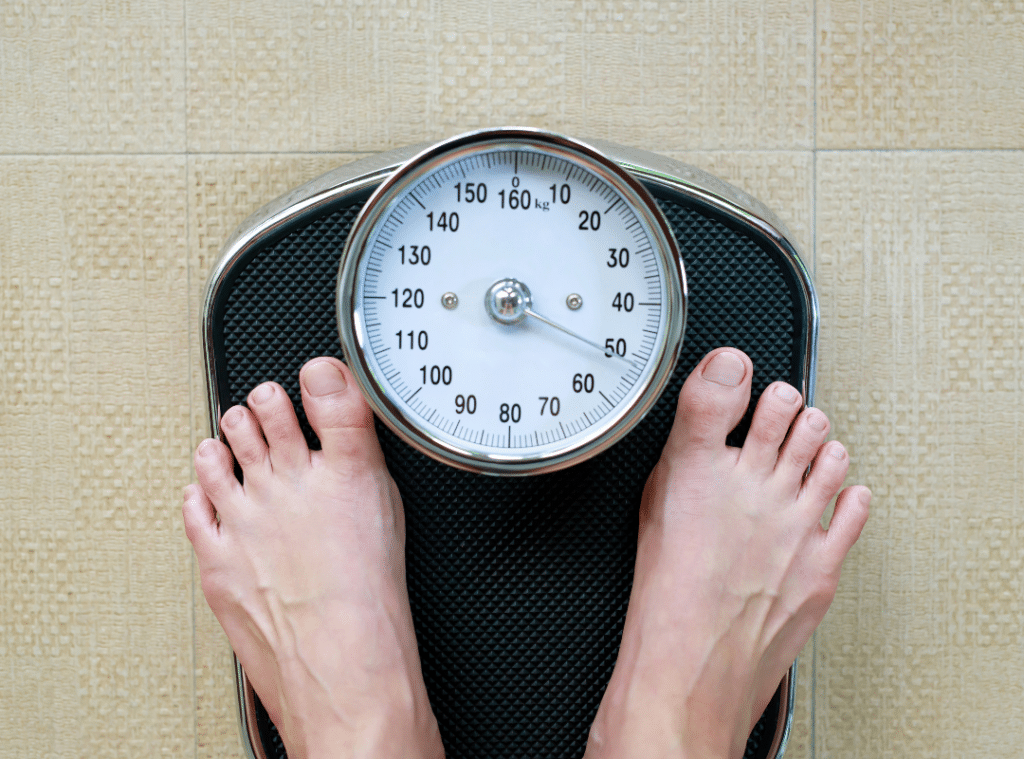Losing weight later in life doesn’t have to feel overwhelming. Whether you’re a man or a woman, how to lose weight in your 60s begins with understanding your changing body and adopting healthier habits tailored to your lifestyle.
At Westmont of Escondido, we support a holistic approach to wellness that includes nutrient-dense meals, regular physical activity, mindful living, and personalized strategies that make weight loss achievable and sustainable.
For a healthier, more energetic future, we invite you to explore our community at Westmont of Escondido.
Understanding How to Lose Weight in Your 60s
Aging affects metabolism, hormones, and muscle mass—all of which can impact weight. That’s why how to lose weight in your 60s naturally requires a different mindset than in earlier decades. The key lies in combining smart nutrition with intentional movement and mental wellness.
For how to lose weight in your 60s as a woman, hormone shifts during and after menopause may lead to stubborn fat gain. Meanwhile, how to lose weight in your 60s, for males, usually involves tackling declining testosterone and reduced muscle mass. In both cases, resistance training and a high-protein, low-sugar diet can make a big difference.
Setting realistic goals and practicing self-compassion are equally important. By prioritizing overall wellness instead of crash diets, weight loss becomes part of a healthier lifestyle rather than a stressful goal.
For additional guidance on healthful eating, see this article on good nutrition for older adults.
Nutrient-Dense Foods That Support Weight Loss
Choosing nutrient-dense foods is foundational to losing weight at any age. But when you’re in your 60s, your body especially benefits from meals that provide more nutrients with fewer calories.
Top Food Groups to Prioritize
- Leafy greens and colorful vegetables for antioxidants and fiber
- Lean proteins such as grilled chicken, lentils, and tofu support muscle
- Whole grains like quinoa, brown rice, and oats provide sustained energy
- Healthy fats from avocados, olive oil, and nuts for satiety
Read more about maintaining a balanced diet for seniors in assisted living.
Practical Tips to Stay on Track
- Cook meals at home to control portions and ingredients
- Keep healthy snacks on hand to avoid empty calories
- Consider meal prepping and storing in individual containers
Not eating enough? Use these appetite-boosting tips to maintain your nutritional intake even when your appetite dips.
Physical Activity: The Heart of Healthy Aging
Exercise is one of the most effective ways to lose weight and stay mobile. Whether you’re aiming for general fitness or specific fat loss, daily movement supports cardiovascular health, muscle strength, and metabolism.
Fitness Plan for People Over 60
- Cardio: Walking, cycling, or swimming for 30 minutes, 5 days a week
- Strength Training: 2–3 sessions per week using bodyweight or light dumbbells
- Flexibility: Gentle stretching or yoga 2–3 times a week to stay limber
Joining social activities like group exercise classes or walking clubs also improves emotional well-being. Explore these senior exercise programs to make fitness more fun and engaging.
Meal Planning That Makes a Difference
Learning how to lose weight in your 60s naturally involves smart meal planning that balances calorie intake with essential nutrients.
Portion Control and Plate Planning
- Use the plate method: half vegetables, one-quarter protein, one-quarter whole grains
- Be mindful of portion sizes—your energy needs are lower now
- Avoid high-sugar and high-sodium processed foods
When grocery shopping, bring a list and avoid shopping when hungry. Choose seasonal and bulk items when possible to save time and money.
By eating mindfully and planning ahead, you can support both weight loss and lifelong vitality. See more senior caregiving essentials for better nutrition practices.

The Power of Strength Training
Muscle naturally declines with age, but you can preserve it through resistance training. This supports your metabolism and enables your body to burn more calories even at rest.
Benefits for Men and Women
- Boosts metabolism: Makes it easier to lose fat
- Preserves independence: Strengthens balance and coordination
- Improves mood: Exercise releases endorphins, reducing stress
Aim for two sessions weekly, focusing on major muscle groups. Incorporate bodyweight movements or resistance bands at home. For men wondering how to lose weight in their 60s, male routines with added weight training can be especially helpful.
Hydration and Digestion: Often Overlooked, Always Important
Staying hydrated can improve digestion, help you feel full, and support your metabolism.
Smart Hydration Habits
- Carry a refillable water bottle
- Infuse water with lemon or cucumber for taste
- Include hydrating foods like celery, watermelon, and tomatoes
Hydration can often be mistaken for hunger, leading to unnecessary snacking. Proper hydration is a small change that makes a big difference.
Mindset, Stress, and Holistic Health
Weight loss isn’t just about food and fitness—it’s also about your mindset. Stress, sleep, and emotional wellness all play major roles in your journey.
How to Create a Holistic Plan
- Mindful eating: Chew slowly, savor your meals, and avoid distractions
- Stress management: Use breathing exercises, meditation, or nature walks
- Adequate sleep: Aim for 7–9 hours to regulate appetite hormones
When asking yourself what is the fastest way to lose weight after 60, remember that quick fixes rarely work long term. The fastest and healthiest route is one that honors your body’s needs.
Check out Harvard Health’s tips for weight control after 60 and Mayo Clinic’s aging nutrition advice.
Your Wellness, Your Way: Start Now
Weight loss after 60 is not only possible—it’s empowering. Whether you’re focusing on how to lose weight in your 60s as a woman, how to lose weight in your 60s as a male, or simply want to feel better naturally, the path to success starts with small steps.
At Westmont of Escondido, we’re here to support you through personalized wellness programs and a community that inspires. You don’t need to navigate this journey alone.
For more guidance on healthy aging and to explore our vibrant lifestyle, call us at 760-737-5110 or schedule a tour. Every healthy choice you make today brings you closer to the vibrant future you deserve.
How Do The Costs Of Moving Into A Quality Senior Care Community Compare With The Costs Of Staying At Home?Compare The Costs of Senior Living vs Staying at Home
Frequently Asked Questions
What is the easiest way for a 60-year-old woman to lose weight?
The easiest way for a 60-year-old woman to lose weight is to adopt a balanced lifestyle focused on whole foods, portion control, and regular physical activity. Prioritizing lean proteins, vegetables, and healthy fats while reducing sugar and processed foods can make a big difference. Low-impact exercises like walking, swimming, and strength training help burn calories and maintain muscle. It’s also important to get enough sleep and manage stress, as these factors affect metabolism and appetite. Consulting a healthcare provider ensures a safe and customized weight loss plan.
How does a 60-year-old lose belly fat?
To lose belly fat at 60, combine healthy eating habits with targeted exercise. Focus on reducing refined carbs and increasing fiber intake to support digestion and regulate blood sugar. Engaging in strength training and cardio workouts helps burn visceral fat and improve core strength. Stress management techniques such as yoga or meditation can also help, as high stress levels contribute to belly fat. Staying consistent with these habits is key to seeing gradual and lasting results.
Is it possible for a 60-year-old to lose weight?
Yes, a 60-year-old can lose weight with the right approach. Although metabolism naturally slows with age, lifestyle changes such as nutritious eating, regular movement, and hydration can lead to successful weight loss. Building muscle through resistance training helps boost metabolism and improve overall body composition. It’s important to set realistic goals and be patient with progress. A doctor or dietitian can help tailor a safe plan based on individual health needs.
Why is losing weight after 60 so hard?
Losing weight after 60 is challenging due to several factors, like a slower metabolism, hormonal changes, and reduced muscle mass. Many older adults also experience decreased physical activity or health issues that can impact weight loss efforts. Additionally, lifestyle habits formed over decades can be difficult to change. However, with the right guidance, determination, and support, weight loss is still achievable. Focusing on health rather than just the scale can also lead to more sustainable changes.









